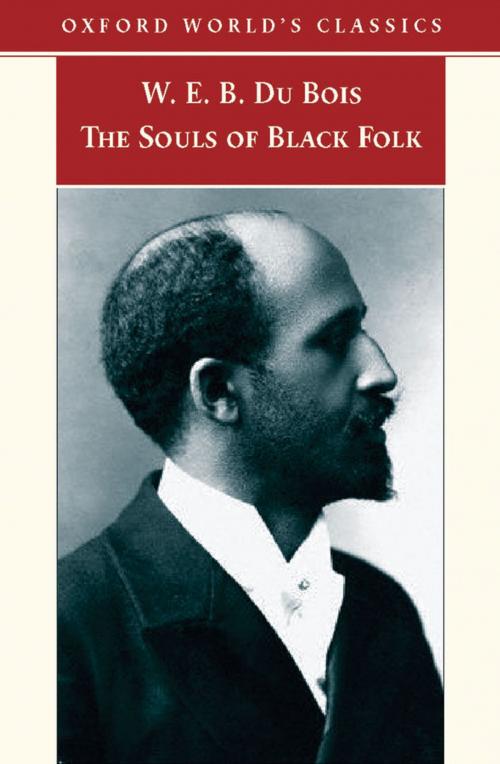The Souls of Black Folk
Fiction & Literature, Literary Theory & Criticism, Black, Essays & Letters, Essays, Poetry| Author: | W. E. B. Du Bois | ISBN: | 9780191604904 |
| Publisher: | OUP Oxford | Publication: | April 5, 2007 |
| Imprint: | OUP Oxford | Language: | English |
| Author: | W. E. B. Du Bois |
| ISBN: | 9780191604904 |
| Publisher: | OUP Oxford |
| Publication: | April 5, 2007 |
| Imprint: | OUP Oxford |
| Language: | English |
'The problem of the twentieth-century is the problem of the color-line.' Originally published in 1903, The Souls of Black Folk is a classic study of race, culture, and education at the turn of the twentieth century. With its singular combination of essays, memoir, and fiction, this book vaulted W. E. B. Du Bois to the forefront of American political commentary and civil rights activism. The Souls of Black Folk is an impassioned, at times searing account of the situation of African Americans in the United States. Du Bois makes a forceful case for the access of African Americans to higher education, memorably extols the achievements of black culture (above all the spirituals or 'sorrow songs'), and advances the provocative and influential argument that due to the inequalities and pressures of the 'race problem', African American identity is characterized by 'double consciousness'. This edition includes a valuable appendix of other writing by Du Bois, which sheds light on his attitudes and intentions.
'The problem of the twentieth-century is the problem of the color-line.' Originally published in 1903, The Souls of Black Folk is a classic study of race, culture, and education at the turn of the twentieth century. With its singular combination of essays, memoir, and fiction, this book vaulted W. E. B. Du Bois to the forefront of American political commentary and civil rights activism. The Souls of Black Folk is an impassioned, at times searing account of the situation of African Americans in the United States. Du Bois makes a forceful case for the access of African Americans to higher education, memorably extols the achievements of black culture (above all the spirituals or 'sorrow songs'), and advances the provocative and influential argument that due to the inequalities and pressures of the 'race problem', African American identity is characterized by 'double consciousness'. This edition includes a valuable appendix of other writing by Du Bois, which sheds light on his attitudes and intentions.















